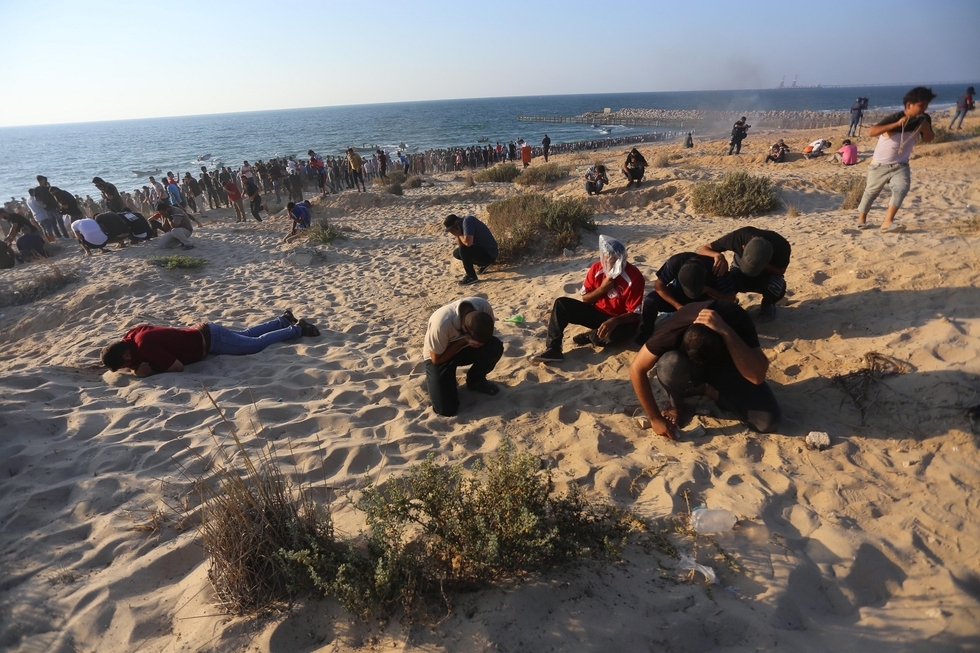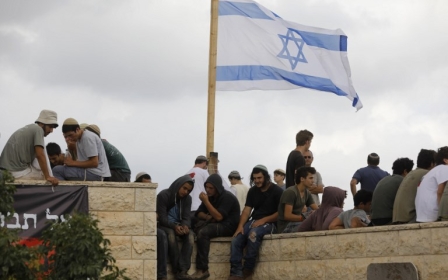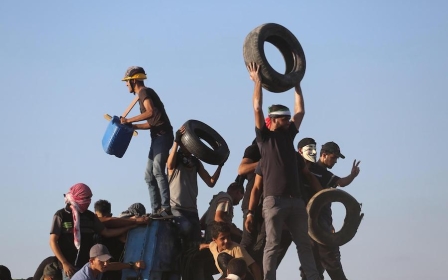Israeli soldiers fatally shoot Palestinian protester in Gaza

Israeli soldiers shot dead a Palestinian man and wounded dozens of others on Monday as they participated in a Great March of Return demonstration in the Gaza Strip, health officials in the besieged coastal enclave said.
The officials said 90 people were hurt, 10 of them by live fire. Since Gazans began holding protests on 30 March, the Israeli army has killed at least 187 Palestinians.
A health ministry spokesman identified Monday's victim as 21-year-old Mohammed Fayez Abu Sadeq.
The protests call for an end to the 11-year Israeli blockade on Gaza and for Palestinian refugees' right of return to the lands that their families fled during the establishment of the state of Israel in 1948.
The majority of Gaza's population are refugees whose families were among the 700,000 Palestinians who had to flee or were forcefully expelled from their homes.
Israel maintains a crippling blockade of the Gaza Strip, which critics say amounts to collective punishment of the impoverished area's two million residents.
Around 10 Palestinian boats sailed off the coast to challenge the blockade on Monday, drawing warning shots from the Israeli navy. There were no reports of Palestinian casualties.
The Israeli military said "thousands" of Palestinians "rioted" on beaches north of the coastal enclave, while Palestinian vessels also staged a "riot at sea" close to the maritime border imposed by Israel.
Despite Israeli violence, the protests have persisted and become more frequent over the past month.
Samaher Ibrahim, a mother of eight, told MEE at a protest on Friday that fear of dying is not a deterrent to her or other demonstrators.
"This is about the entire Palestinian people, not just us as individuals," she said. "If each one says 'I don’t want to go,' then who will resist the siege?"
New MEE newsletter: Jerusalem Dispatch
Sign up to get the latest insights and analysis on Israel-Palestine, alongside Turkey Unpacked and other MEE newsletters
Middle East Eye delivers independent and unrivalled coverage and analysis of the Middle East, North Africa and beyond. To learn more about republishing this content and the associated fees, please fill out this form. More about MEE can be found here.




